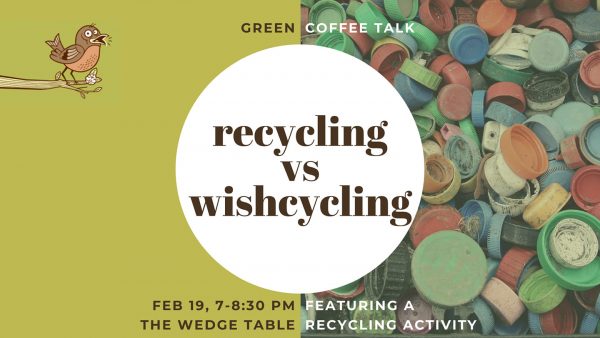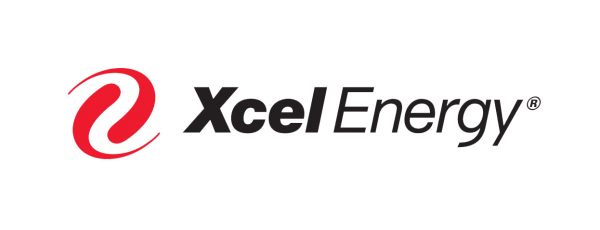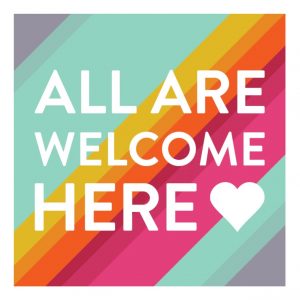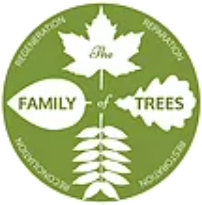RECYCLING vs WISHCYCLING
Wednesday, February 19, 2020 at 7 PM – 8:30 PM
The Wedge Table
Ever wonder what happens to your recycling after you put it in the bin?
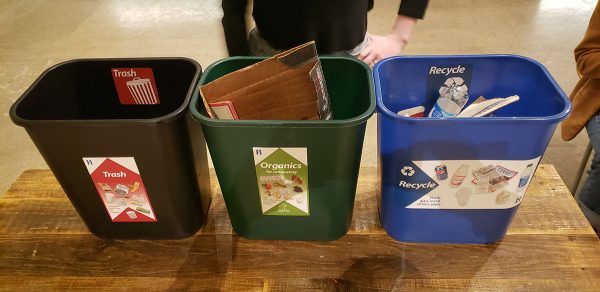
It’s the beginning of a long journey to give them a chance at a second life. Eureka Recycling developed a video – the story of a cereal box – to help visualize the process. They also have public tours so you can see this in action first hand.
Material recovery facilities (MRFs) like Eureka Recycling play an important role in collecting and sorting items into bales of different materials – plastic, paper, aluminum, and glass, among others. They are sent to material processors who further clean and turn them into raw materials. These can then be used to manufacture recycled-content products.
But not everything that we put in the recycling bin makes it to the intended final destination as a new product.
Sometimes, the machines and people at the MRFs are not able to capture items that could be recycled. Black plastics and new packaging go by undetected because the technology and processes haven’t yet been able to catch up with changing product packaging trends.
Other times, we don’t know if an item can be recycled, but we put it in the bin anyway hoping that it has a better chance there than throwing it in the trash. So we put items like plastic bags, shoes, diapers, garden hoses, and appliances thinking that they should be recyclable. This is called wishcycling. The reality is that the systems at the MRFs are not set up to capture these materials, so they end up in the trash anyway.
What does recyclable really mean?
Single sort recycling has made it very easy for us to combine our recycling in one place. No longer do we have to separate the plastic from the paper from the glass. However, MRFs are limited in what they can do by a combination of factors including technology, processes and markets.
Before you put something in the recycling bin that you’re unsure about, ask yourself these three questions. If the answer to all three is yes, then it’s very likely that it can be recycled. If any are no, then do not put it in your recycle bin.
Let’s use the example of plastic grocery bags.
- Is it recyclable? If you think about it, almost everything can be recycled. Most grocery bags are made of #4 plastic and can be recycled into new products. So yes, grocery bags are recyclable.
- Is it capturable? If they’re recyclable, can the MRF capture it? When MRFs get plastic bags, they end up getting caught and tangled in the machinery. So no, plastics bags are not capturable… but, you can take them to collection bins located in grocery stores or retail locations. Go to the locator tool from Plastic Film Recycling to find out a drop off location near you.
- Is it desirable? If it is capturable, who can it be sold to? The plastic bags that are dropped off at grocery stores or retail locations can be made into plastic lumber that is used to make park benches, backyard decks and fences. So yes, plastic bags are desirable.
In the example of plastic bags above, we answered no to them being capturable. Because of that, they cannot be put in the recycling bin. But they can be captured through the plastic bag collection bins at stores.
Recycling best practices
We may not always know the answer to the three questions above. Plus recycling rules can differ based on the services offered in the places you live and work. But there are some general best practices we can all follow regardless of where you reside.
Many of us are familiar with the materials that can be recycled – paper, cartons, glass, plastics and metal. Review this recycling guide from Hennepin county that list items of each type that can be placed in your bin.
What to keep out gets a little trickier. Here’s a list of what not to include:
- Plastic bags and film
- Large plastic items
- Random metal items
- Bagged recyclables
- Harmful items – batteries, sharps, propane tanks, etc.
- Paper cups and plates
- Styrofoam packaging and #3, #4, #6 and #7 plastics
Other items to keep out that may surprise you:
- Black plastic
- Reusable glassware
- Clothing
- Frozen food boxes
Other things to keep in mind:
- Empty and rinse containers – they don’t have to be as clean as your dishes, but scrape out any food residue
- Only include #1, #2 and #5 plastics – there’s no market for the other numbers
- No smashing – keep cans intact so machines can detect them
- Keep caps on – in a few instances, it’s better to separate the cap from the container if they’re different materials, but it’s generally ok to leave them on.
- Aluminum foil should be the size of a baseball – also remember to keep it clean
Want more details on the above, check out this Minnpost article that does a good job summarizing with visuals.
When in doubt, throw it out. Do what you can to figure out if you can recycle an item. If you’re still unsure, it’s better to put it in the trash. If an item that’s meant to be trash goes to recycling, it uses up additional energy and resources to sort it out and bounds up in the trash anyway.
Additional resources
- Eureka’s recycling app – can be accessed through the website and/or downloaded as an app on your phone
- Terracycle – learn about what other items, like chip bags and personal care products, can be recycled through a Terracycle program
- How2recycle labels – if you’ve seen these labels in Amazon packaging and other packaging, this site gives you more information.
- Zero Waste St. Paul Connection Group on Facebook – connect with a group of like-minded individuals who ask and share info, including questions on what can and cannot be recycled.
- Resources from the Recycling Association of Minnesota
- Minnesota recycling markets directory
Beyond recycling
Recycling falls towards the bottom of the zero waste hierarchy – Refuse, Reduce, Reuse, Recycle, and Rot. There are many things to prevent having to recycle items in the first place like finding product alternatives that are made with less packaging or figuring out ways to reuse or repurpose items.
Although refusing, reducing and reusing can have a more significant impact on waste reduction, recycling smarter is a great place to start in your waste prevention journey. Knowing what can and cannot be recycled can open the door to teach others about where our waste goes and inspire further action on how to prevent it.
About Green Coffee Talks
Are you looking to “go green” or grow your green community? Come meet and collaborate with other eco-friendly people! We’ll discuss how to overcome the challenges of staying green and share tips/resources on eco-friendly options! Each meeting has a specific topic to learn about, but the conversations go with the flow. Green Coffee Talks are held once a month at varying locations around the Twin Cities.

